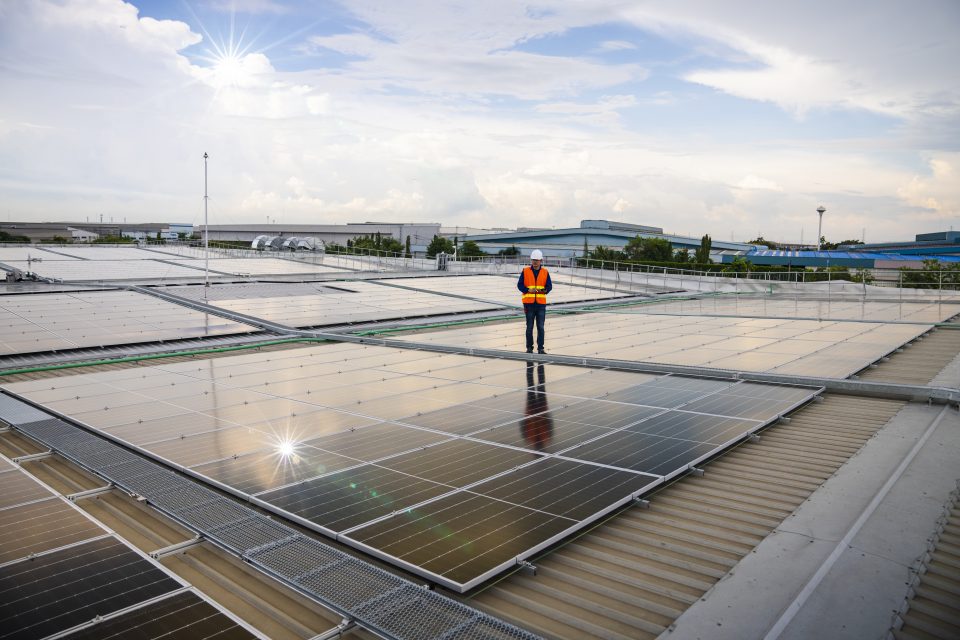By Patrice Amann, EMEA Regional Business Lead – WW Financial Services
Why connecting capital with businesses to shape a greener, more inclusive tomorrow is a data play
COP26 saw some important announcements around climate finance. The Glasgow Financial Alliance for Net Zero committed to cut the emissions from its lending and investing to zero by 2050. The International Financial Reporting Standards Foundation launched an initiative to establish consistent climate disclosure standards for financial markets. These are just two examples.
It is obvious that shifting the economy from fossil fuels to clean sources of energy requires a vast reallocation of capital. As Rishi Sunak, the UK Chancellor, pointed out during Finance Day at COP26:
“Investors need to have as much clarity and confidence in the climate impact of their investments as they do in the traditional financial metrics of profit and loss.”
For business leaders, clearly there’s pressure to step up their organizations’ green efforts and help protect the planet for future generations. But there’s another pressure being felt. Leaders in every sector – including financial services – increasingly realize that purpose and profitability are intertwined.
Consumers increasingly expect environmental and societal action from brands they buy and are willing to pay to be greener. Businesses are putting ESG (Environmental, Social and Governance) standards front and center when negotiating partnerships and supplier deals. In part due to growing pressure from stakeholders and regulators – with the EU requiring enterprises to regularly report on ESG activities. But also in response to opportunity: the EU’s Green Deal is mobilizing €1 trillion in investments to support digital initiatives that marry sustainability efforts with economic growth in the coming decade. This year alone, the European Commission plans to raise €250 billion in green debt as part of its COVID-19 relief package.
ESG is now a board-level priority, and companies that demonstrably follow through on their commitments will develop a competitive advantage. Research from Bank of America shows ESG investment strategies outperformed by 5 to 10 percentage points in Europe and the US.
Investors have taken note. The value of ESG exchange-traded funds, or ETFs, doubled globally in 2020 to over $120B. We see financial services companies like BNY Mellon launching data and analytics solutions specifically designed to help managers better customize investment portfolios to preferred ESG factors. Charles Teschner, the company’s global head of data and analytics noted: “What makes the launch of these new innovative cloud-based products so exciting, is that they have been designed to target our clients’ unmet needs.”
“ESG is not some tree-hugging, ephemeral, loss-making charitable thing. It’s a real thing that most generations, particularly younger generations, believe in with their heads, hearts and wallets.” – Chris Skinner, financial technology expert
As allocators of capital, financial services companies – whether fintechs, retail banks or investment brokers – have a critical role in shaping a more sustainable, inclusive future. They are the gatekeepers between finance and the organizations successfully advancing on their ESG goals.
However, as the ESG market matures, the issue of measurement is proving to be a significant pain point.
Unlike measuring and reporting financial performance, there is a lack of clear cross-sector standards for ESG reporting. Instead, ESG-related data often comes from self-disclosed annual sustainability or quarterly data vendors’ reports and rankings.
In response, organizations like the World Economic Forum and the International Business Council (a community of 120+ global CEOs) have taken on the cause of creating common metrics for ESG reporting. The recently released manifesto from the World Business Council for Sustainable Development highlights the urgency of addressing this issue.
“Businesses are already collaborating to address the data transparency and coordination challenge… But more work is needed to share comprehensive emissions data [and] set clear procurement standards to promote decarbonization through the supply chain…” – World Business Council for Sustainable Development
Further, the Central Banks and Supervisors Network for Greening the Financial System (NGFS) recently published a report encouraging central banks and supervisors to incorporate scenario-analysis to better understand the economic and financial risks from climate change.
Ultimately, if financial services firms hedge their bets, it means less investment in the green transformation efforts we collectively need. And without reliable, discoverable data, financial companies and traders cannot effectively find the most promising ESG investment opportunities; this can hinder economic growth as well as environmental and social progress.

Getting the house in order: the importance of data management
The ability to record, report and action ESG related data will be a journey for each organization. There is no one set path. What’s important for businesses to think about is how data is captured and measured — not only to guide their internal ESG efforts, but to ensure transparency with external stakeholders as well, whether partners, customers or investors. It’s key to think about the ‘S’ and ‘G’ too – capturing data not only around sustainability but the total impact of an organization’s efforts to behave ethically and advance societal goals.
Moving to the cloud is a fundamental step for being able to capture and store internal and external data, both structured and unstructured. Variables being measured might include direct and indirect carbon emissions, raw materials sourcing and waste management to workplace pay equity and diversity. Further, AI and machine learning have important roles to play in automating data capture and analysis. This is why we see UK bank NatWest Group working with its business customers to deploy AI tools to better understand their carbon footprint, the footprint of their partner networks, and create tailored action plans.
NatWest CEO, Alison Rose said: “Tackling climate change is one of the biggest challenges of our time. As the leading bank in the UK for businesses, we have a significant responsibility, and the ability, to encourage, enable and to lead the way in the UK to transition to a net zero carbon economy.
Using data to create entirely new business models – unlocking revenue while reducing CO2
Being able to use data to confidently report on ESG builds trust with every key stakeholder, from employees to investors. But it’s also exciting to see that the shift to becoming a data-driven organization is creating entirely new business models that drive revenue while decreasing CO2 emissions.
Netherland’s Rabobank created a platform that lets farmers measure how much CO2 they produce and how much has been sequestered – with the help of remote satellite sensing and AI algorithms. If the farm has sequestered more CO2 than it has produced, the delta can be sold to companies needing to offset their own CO2 emissions. The goal is to get more than one million farms onto the platform. Already, the farmers are seeing benefits. The project has reduced carbon emissions through better soil, fertilizer and wastewater management. Also, the project has enabled farmers to increase quality and consistency of their produce. Productivity of participating farms went up by 15-20% over three years. Income has increased by 20%.
Flowe, an Italian fintech startup built a mobile app targeting millennial customers by coaching them on how to live more environmentally friendly lives. Ivan Mazzoleni, Cultural Energy Orchestrator at Flowe observed: “At Flowe, we are promoting a completely new economical paradigm. We are calling it the ‘better-being economy,’ in which personal improvement is totally aligned with overall improvement — the improvement of society, and of the environment.”



